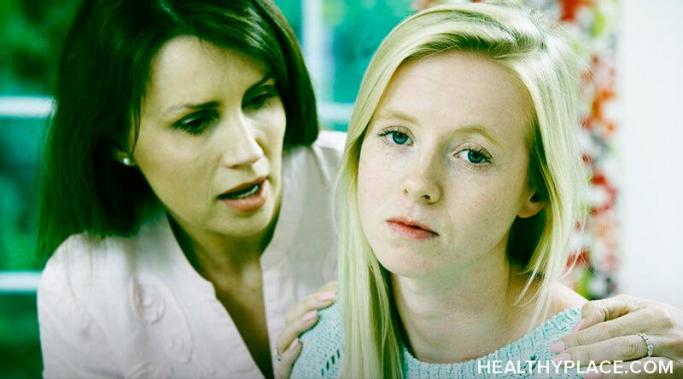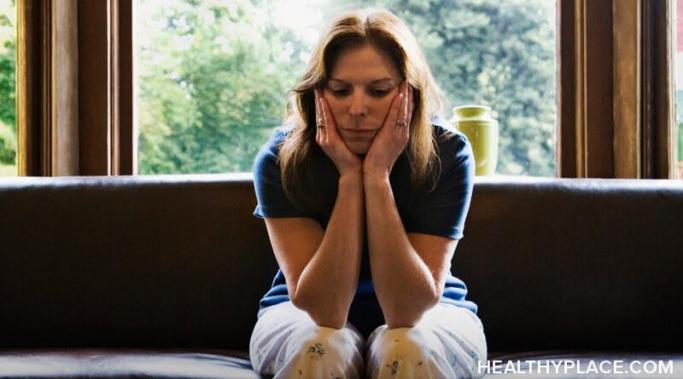While thinking about what to write about this week, I received a text from someone I had not spoken to for a long time, and it inspired me to write about nurturing healthy relationships when you have depression. The relatively quick conversation left me thinking about how the person and I had drifted apart. Yet, in all honesty, I wasn't sad about the drifting apart. What I once thought was a healthy relationship was not. It was very one-sided and unhealthy for me, living with depression. Thus, nurturing healthy relationships becomes not just beneficial but essential when you are coping with depression.
Depression Stigma and Self-Stigma
I live with major depressive disorder. Much like any diagnosis, disability, disorder, illness, and so on, there is a politically correct way to discuss those who have a mental health disorder. Through my research and curriculum development at my job, I learned that the people-first language for mental health uses the phrase "living with." For example, I would say that I am living with major depressive disorder, not that I suffer from major depressive disorder. This is a more appropriate way to describe ourselves and others.
Masking depression is something many people do. I tell people when I discuss living with major depressive disorder that I am the queen of masks. And it's true; I can smile when I need to. I became such a perfectionist at masking my depression that I could even fool my closest friends. Yet, when I am alone or turn around, my smile disappears from my face quicker than a scared jackrabbit.
Though our society has come a long way in the perception of mental illness, stigmas around this topic are still alive and well. Stigma can be blatant or subtle; sometimes, it’s as small as an individual word or phrase. Here are some tips for choosing the right words and using language to fight mental illness stigma.
Although our society has come a long way in the treatment and perception of mental illness, there’s no doubt that stigmas surrounding these illnesses are still alive and well. Societal stigma can lead to self-stigma, and both can be very damaging to people with depression. Here we'll discuss common stigmas about depression, why they're problematic, and what you can do to fight them.
Last week, an online friend died by suicide. While I am still grieving and in shock, I am not surprised. They had been struggling with depression for a while. As someone living with clinical depression for years, I know that thoughts of self-harm and suicide are standard. It is hard not to act on them, and doing so can be fatal. Depression may or may not be visible, but it is always cruel. It impacts every aspect of one's life and can even cut it short. She is the first friend who I have lost to death by depression, and I hope she is the last. However, metaphorically speaking, depression causes one to lose friends. I know this because it has happened to me quite a few times. (Note: This post contains a trigger warning.)
It's no secret that depression can affect your behavior -- that it can cause you to do and say things you wouldn't ever otherwise do or say. But when should you hold yourself accountable for bad behavior? And to what extent does mental illness excuse bad behavior? What kind of allowances should we expect in times of poor mental health, and what kind of allowances should we be prepared to grant to others? When is depression simply not an excuse?
The title of this blog is "Coping with Depression." In the past, I've used it to talk about ways to feel productive, beat procrastination, and improve relationships during a depressive episode. But the reality is that some days, "coping" just means surviving through the worst days. So, in honor of World Suicide Prevention Month, I would like to offer some simple tips on how to get through when "getting through" seems impossible.
The iceberg theory is a frequently cited model of behavior which states that a person's behavior can only be properly understood in the context of the factors that caused it. What a person does is "the tip of the iceberg"-- what we don't see are the emotional, social, cultural, and other factors that lie beneath the surface and cause that behavior.
Parenting is always a divisive topic. Every generation thinks it has found the trick to child-rearing, and every new parent vows to avoid the mistakes their own parents made in raising them. Attitudes towards discipline, attachment, nutrition, education, and play are constantly evolving, but one thing that never seems to change is the idea that crying is a bad thing and that the goal when a child cries is to get them to stop at any cost. This attitudinal hangover from the days when children were to be seen but not heard is incredibly worrying and something we should resist as parents in order to safeguard our children's mental wellbeing.









